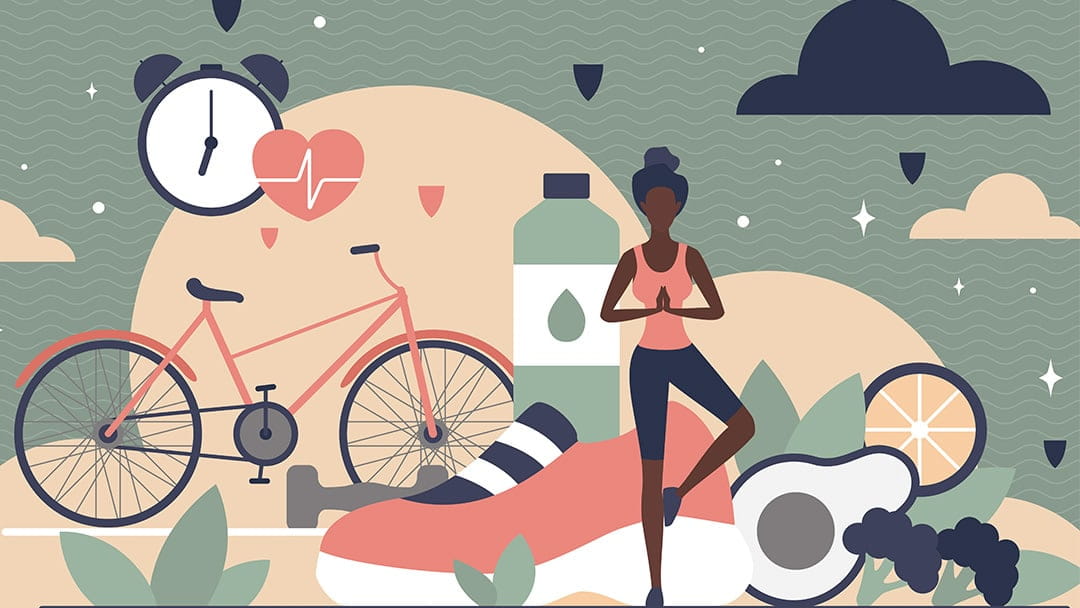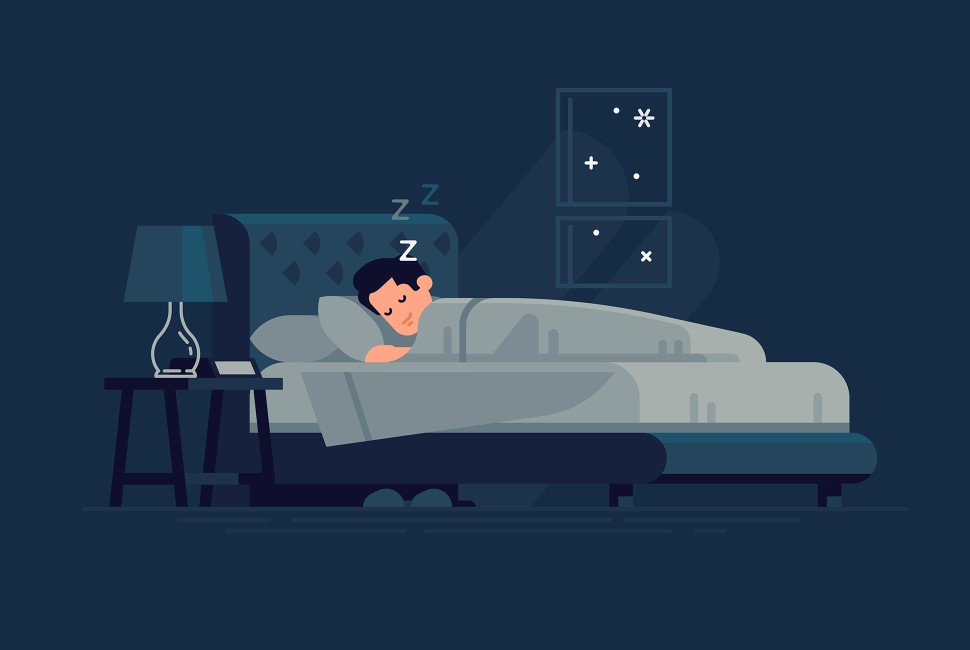Most people only care about their health when they encounter problems or illness.
After the age of 30, the body ages more rapidly. By 40, there is a significant difference between those who take care of themselves and those who do not.
There is an 80% chance that you will die from one of four diseases: cancer, heart disease, stroke, or brain disease such as Alzheimer's.
These diseases can still be avoided with a healthy lifestyle. The best thing you can do now is prevent illness and take care of yourself rather than wait until it's too late.
Below are the health principles I apply. I won't dwell much on the obvious things like getting enough sleep, brushing my teeth daily, etc.
General
1. Get your eyes checked at least every 2 years to assess your risk of glaucoma - leading to blindness. Especially when you're over 40 years old (source).
2. If you are nearsighted, consider using blue light filtering glasses as they help block 20% of UV rays and prevent blue light emitted from digital screens, which can reduce eye strain and fatigue.
3. Use the flux app to adjust the brightness of your computer screen, avoiding blue light from the screen which is good for your eyes and helps you sleep better.
4. It seems better not to share soap bars: they harbor MRSA bacteria (MSRA infection). If you do, don't share it with anyone, and let it dry in a dry place.
5. Avoid using plastic water bottles as they can leak chemicals. It's healthier to replace plastic bottles with glass or stainless steel water bottles.
6. Protect your liver as it affects metabolism. Poor metabolism or liver function will affect obesity and many other diseases. Previously, I used Milk Thistle to detoxify the liver. Refer to The Metabolism Reset Diet.
7. Avoid addictive substances if you're not addicted. It's much harder for people who are addicted to drugs/alcohol/beer/stimulants to quit compared to those who have never tried them before. And it also helps you save money.
8. If you're too lazy to run, at least walk 1 km or more every day. It helps prevent many health issues in old age. Walking also makes you less sluggish and more mentally relaxed (personal experience).
9. Take deworming medicine every 1-2 years.
Dental Health
10. If your gums bleed when brushing, or if they appear redder than usual, you may have tooth decay or gum inflammation. If possible, visit the dentist as soon as possible.
11. Visit the dentist at least once a year for scaling, cleaning, or checking for dental issues.
13. It's better to brush your teeth for longer rather than harder. Typically, people brush for less than a minute, although it takes at least 2-5 minutes to remove bacteria while brushing. You can read or watch something while brushing your teeth to make time pass more quickly.
14. Using an electric toothbrush will help you brush longer and cleaner. Electric toothbrushes often have an automatic on/off mode within 2 minutes, helping you brush more thoroughly.
15. Drink less sugary drinks as they can cause tooth decay.
16. Avoid sharing toothbrushes, as brushing can cause bleeding. If two people share a toothbrush, they may share blood, increasing the risk of disease transmission. If possible, use mouthwash as well. It helps reduce acid in the mouth, cleans difficult-to-reach areas in and around the gums, and remineralizes teeth.
17. Use a tongue scraper. Plaque accumulates on the tongue, leading to bad breath as well as other oral health issues.
18. Regardless of the toothpaste you use, opt for fluoride-containing toothpaste, as fluoride helps prevent tooth decay. Similarly, when choosing a mouthwash, look for fluoride-containing ones.
Sleep
Interestingly, all the books I've read about healthy eating also talk about sleep.
If you want to sleep better:
19. Avoid smoking or drinking coffee, alcohol, and caffeinated drinks after 12-2 pm. Many types of tea also contain caffeine.
20. Spend time in sunlight during the day (preferably early morning or late afternoon when UV rays are weak). This helps regulate sleep. Walking is one way.
Additionally:
21. I've been sleeping without a pillow for a few years now and find it quite okay. The benefit is that I have less neck pain and it helps keep my neck straight.
22. Prioritize using LED lights instead of CFL (compact fluorescent lamp) lights. CFL lights can emit UV rays, which are harmful to the skin.
Nutritional Supplements
There are two main types of nutritional supplements I often use:
23. Vitamin D: I take at least 1000 IU/day. Most people are deficient in Vitamin D. It also helps prevent many diseases in old age such as cancer, heart disease, and osteoporosis.
24. Omega-3: The body does not produce Omega-3 on its own, so it must be obtained from food sources like eggs, and salmon. It can help protect the brain and prevent cancer.
Additionally:
25. If you are vegetarian, taking Vitamin B-12 is essential, at least 2000 mcg/day. Take it on an empty stomach.
Diet
26. The more colorful your meal, the better.
27. Replace white rice with brown rice. Brown rice contains more beneficial nutrients and reduces the risk of diabetes.
28. If you want to optimize the nutritional value when eating vegetables, prioritize those that don't require excessive frying or boiling, as they can reduce nutrients. Except when boiling helps increase nutrients, such as carrots will have more nutrients when boiled.
29. Avoid consuming too much-fried food, as fried food contains aldehydes. This substance can harm the brain, leading to Alzheimer's disease in old age.
30. Avoid consuming too much sugar. Sugar, or glucose, attaches to and damages the surface of proteins and cells necessary for the functioning of organs and the brain. This process is called glycation. (Limit excessive consumption of milk tea, and milk coffee).
Anti-aging/Beauty
31. Use sunscreen, especially in the summer, every time you go out. Most wrinkles on your face are largely caused by UV rays.
32. If your skin is too sensitive, try using sunscreen for children. Physical sunscreen is also good but tends to create an unnatural layer on the face.
33. Avoid touching your face to the pillow when sleeping on your side as it can dirty your facial skin.
34. Clean skin is essential, followed by sunscreen, and then moisturizer. People who know how to take care of their skin in the long run will look much younger than those who do not care.
35. Avoid resting your hand on your chin, as it can cause wrinkles in the long run.
36. This may sound unreasonable: Fasting may help you be healthier and fight aging. Mechanism: toxins from food intake accumulate in fat. Fasting helps burn excess fat, reducing toxins. You can apply the popular method nowadays, intermittent fasting. Basically, you fast for 16 hours (including 8 hours of sleep) and only eat within 8 hours.
37. Avoid jealousy/hatred/envy/being too preoccupied. Not good for health, makes the skin wrinkled, and also shows immaturity. What I find quite effective is focusing more on myself and gradually pushing aside comparative thoughts. Don't worry too much about others.
Financial
38. Consider your savings as assets. I've seen many people work for years without saving any money. This will make you always depend on money/debts whenever you need a large amount of money.
39. Avoid spending more than what you earn.
40. Rent should not exceed 1/3 of total income.
41. Check your transactions every few days to ensure you have not made any unauthorized transactions.
42. Be cautious when hiring financial advisors, even if you have surplus money. They may charge a percentage of the amount you invest, and it will increase over time/the amount you invest. If hiring, hire a professional who charges a one-time fee. There are also many books/experts available online to help you make the right choice.
43. Prioritize using algorithms (robo-advisors) for investing. It's hard for you to invest better than someone who spends 8 hours a day like a financial analyst. Moreover, if you invest on your own, you are very likely to be influenced by short-term emotions, leading to mistakes.
44. Having a basic understanding of compound interest, inflation, and risk/return ratios will greatly benefit your life.
Psychology & Relationships
45. Be cautious when overly excited in the early stages of a relationship (~the first 3 months). Everything seems rosy, and it's challenging to assess your partner comprehensively. Overexcitement can lead to disappointment and breakups. Sometimes, adopting a more pessimistic view may be beneficial in the long run.
46. Don't try to court someone for too long if you're not receiving any signals from them. If you persist too much, it's almost certain (95%) that the person you're courting doesn't like you.
47. Consider living together before getting married. Even if you want to get married, consider whether you want to register your marriage legally or not (not applicable to those who value tradition; here, I'm only discussing practicality). Sometimes, you can't understand your partner until you've lived together. Or even after marriage, you might end up divorcing in the long run (the marriage/divorce rate is almost 50/50 now). Dealing with legal procedures, asset division, etc., can be very complicated, even causing resentment.
48. If you break up, don't try to cling on. No one likes desperation. Try to take a long-term view - chances are, in 1-3 years, you won't remember much about them anymore. Focus on other things - learn to play an instrument, build your career, expand your social circle, raise a pet.
49. Avoid watching porn as it can be addictive and is not good for mental health.
50. It's very difficult to avoid moments of sadness/loneliness. Consider such times as opportunities for personal growth (most people don't learn much when life is too comfortable).
This list is not exhaustive. There are many rules that I am not aware of. If you find something off or if any health rules are missing, comment below so I can learn more :)






